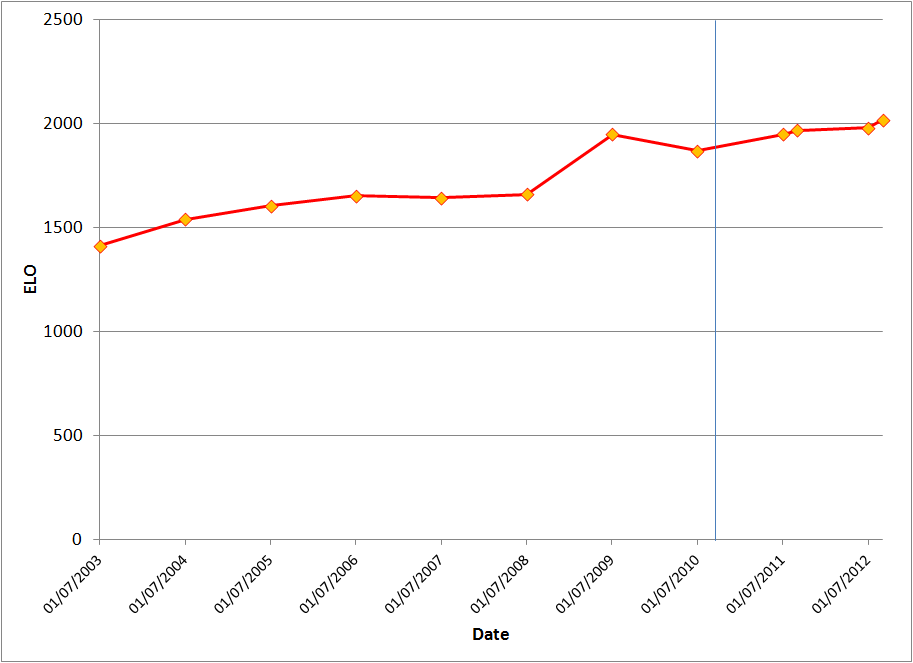Tomorrow I will be moving to China to study Mandarin for a year at Xiangtan University. Although my desire to improve at chess has not waned, and I still believe my project is achievable, I no longer feel able to blog under the ‘Road to Grandmaster’ heading without making chess my first priority.
Two years ago today, I wrote in my first post and ‘mission statement’:
“This blog will document my journey as I attempt to improve from a ‘Class A’ chess player to a Grandmaster, the highest title awarded by FIDE (the World Chess Federation). I propose to do this without failing my degree (an MSci Joint Honours in Physics and Chemistry), without dropping my other hobbies (guitar, Go, Mandarin Chinese and more), without losing my girlfriend (who has not the slightest interest in chess), and even whilst maintaining a normal student’s social life.”
Starting with the secondary aims, I wasn’t able to dedicate much time to my other hobbies, though the more important degree and girlfriend-keeping have been or continue to be negotiated successfully! The primary aim has not of course been completed; I am not a Grandmaster. However, I do feel my chess has improved, and when FIDE takes into account my performance at the Czech Open I will finally have progressed from ‘Class A’ to ‘Expert’. The graph below shows my ECF grade (converted into an approximate FIDE rating) up until July 2011, with the vertical blue line marking the start of this project. In September of that year I got my first FIDE rating, and the points thereafter reflect that rating. (It would be remiss of me not to mention that my latest ECF grade has actually gone down, but I believe my FIDE rating to now be my most reliable one. The 2009 point is artificially high because the ECF made alterations to their grading system in that year.)
My rate of improvement during the project has been solid but unremarkable (+~150 points in two years). Please refer to my latest study plan post for my thoughts on possible reasons for that.
For those of you who, like me, aspire to take great strides forward in your chess understanding and strength, a few words:
1. Do not be discouraged by those who claim that ‘talent’ is all-important. (The Polgar sisters are one great example which demonstrates that practice is much more important.) For an entertaining and inspiring read about the power of ‘deliberate practice’, try ‘Bounce’, by Matthew Syed.
2. Prioritise. The American wrestler Dan Gable has been quoted as saying: “If it’s important do it every day, if it’s not don’t do it at all.” In other words, if you try to improve your chess whilst working full-time, learning the shakuhachi, and playing golf four times a week, you won’t get very far.
3. Make yourself accountable to someone. I did that in a big way with a public declaration of my intent and regular updates on this blog. It’s been a mixed blessing – a source of both motivation and anxiety – and I think a smaller-scale declaration could work as well.
In closing, I’d like to thank everyone who has helped me in any way over the past two years, whether by offering to share their books or learning materials, their time to play and analyse, or their words of wisdom and encouragement in comments on my posts. You’ve helped to keep me going after bad tournaments, and have fuelled the improvement which I am confident will continue even after I stop posting here. Although I have not achieved my goal, I hope some of you have nevertheless found some value in my posts. It may well be that at some point in the future I will once again find the time to pursue chess improvement as a top priority, but until such time, goodbye, and good luck.
